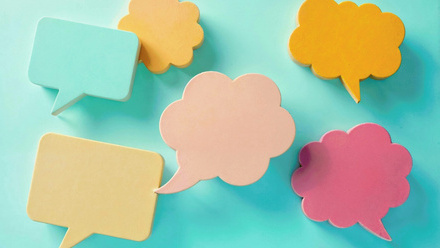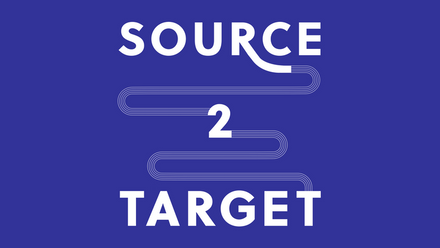Ways to live a more sustainable life
After attending an ITI webinar on the actions that translators and interpreters can take against the climate emergency, Marina Torruella Bonsoms was inspired to share the steps she is taking to live a more sustainable life.
Last month, I attended Kate Stansfield's webinar on the actions that translators and interpreters can take against the climate emergency. It was a brilliant presentation, and Kate put a lot of emphasis on the importance of sharing what we are doing. That way, we inspire other people to take action. We might be small on our own, but SMEs comprised 99.9% of the companies in the UK in 2021, and together we are a force to be reckoned with!
So I'm pleased to have this opportunity to share what I am doing to live a more sustainable life, both personally and as a business, because we freelancers are our businesses. Our personal choices mesh with our work ones, and they matter.
In my business:
- My laptop is refurbished, and most of my office equipment is second hand (including the standing desk).
- My website and email are hosted with a green provider. Nowadays, several companies are marketing themselves as such, and it can be hard to know exactly how green they are. My provider explains on their website how they endeavour to cool data centres in energy-efficient ways and that their energy supply comes from renewable sources. I will return to the subject of our digital carbon footprint because it’s huge.
- My work is primarily digital. Other than my to-do-list notebook, post-its and the ITI Bulletin that I guiltily still get by post, there is no paper involved (I know I just wouldn't end up reading the Bulletin without the physical copy…)
- I work from my home office, so the fact that our energy supplier provides electricity from renewables is relevant here too!
- I endeavour to say no to projects that go against my values.
In my personal life:
- I am vegan because I care about animal welfare. The positive impact on the planet is just a plus for me in this case.
- I mostly travel by bike or train and I'm cutting my flights. Unfortunately, I can't afford to travel by train every time I visit my friends and family in Barcelona, but I'm going there less often for longer periods and alternating rail and air travel.
- I buy second-hand clothing and look for sustainable brands if buying new. I've also had a go at making my own clothes out of organic cotton.
- I'm participating in my local Extinction Rebellion group and thinking of engaging with other organisations such as Jubilee for Climate.
- My partner and I are working on insulating our old Victorian terrace. Admittedly, this is creating lots of waste in the process, but I hope the benefits outweigh the drawbacks eventually. We are also getting lots of things second-hand, such as a kitchen and wooden flooring.
Areas for improvement:
- Digital hoarding. It’s estimated that if the Internet were a country, it would be the world’s seventh-biggest polluter. Data centres need a constant supply of electricity to power the servers and prevent them from overheating. Transmitting data through the telecoms networks also requires energy. This means that every time you open a website or send an email, some CO2 is released into the atmosphere.
As well as switching to eco-conscious hosting providers, we need to be mindful of all the data we are storing in order to reduce our digital footprint. The good news is that optimising a website improves its SEO and that you might save money on hosting or cloud storage plans by deleting stuff you don’t need. In my case, I really need to declutter my email and cloud storage.
If you are a member of the ITI, I recommend checking out the resource list on Kate’s webinar, which has a lot of information on how to go about this. - Banking. Banks invest in all sorts of things, like fossil fuels and the arms trade, so choosing a bank with an ethical investment policy is key. My personal UK bank account is with the Cooperative Bank, but I still need to switch my Euro accounts. For business, I use Wise because of the multi-currency account, and I am not aware of any green alternatives at the moment…
- Waste. I'm trying to reduce plastic and not buy food in non-recyclable containers or, at least, buy in bulk. However, there are some things I still haven't found a solution for: tofu, vegan cheese and other vegan and sugar-free substitutes. I have tried making tofu myself without much success (do you know how much soy milk you need for a tiny bit of tofu?!), so it doesn't seem like a viable option at the moment!
- Transport. I’ve mentioned planes already and how expensive it is to travel by train instead. And, right now, having a car is proving invaluable while renovating our house. Unfortunately, you can’t carry plasterboard on a cargo bike, and the flip side of getting things second hand is sometimes having to look outside of your local area for what you need. Electrical car share schemes that complement improved and affordable public transport are probably the way forward for this one.
I hope these actions I’m taking inspire others to do the same or go beyond, or simply to feel that they are not alone, there are others who care too.
Having said all this, I want to stress that people should not bear the burden of solving the climate emergency with individual actions alone. To get us out of this one, we need individual actions that add up, but they also have to be supported by large-scale political, economic and societal changes that don't lose sight of equality and justice. This is why campaigning and talking about this is so important as well.
If you are an ITI member you can watch our webinar with Kate Stansfield that Marina refers to:







